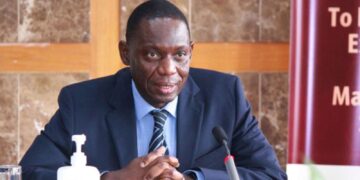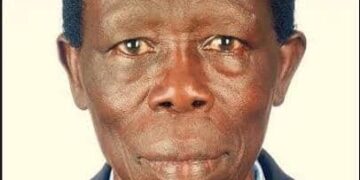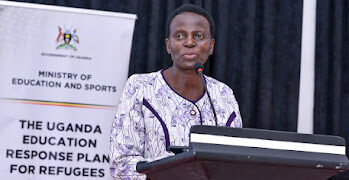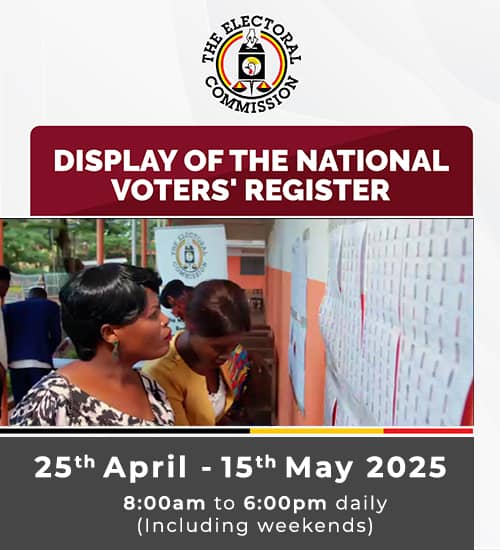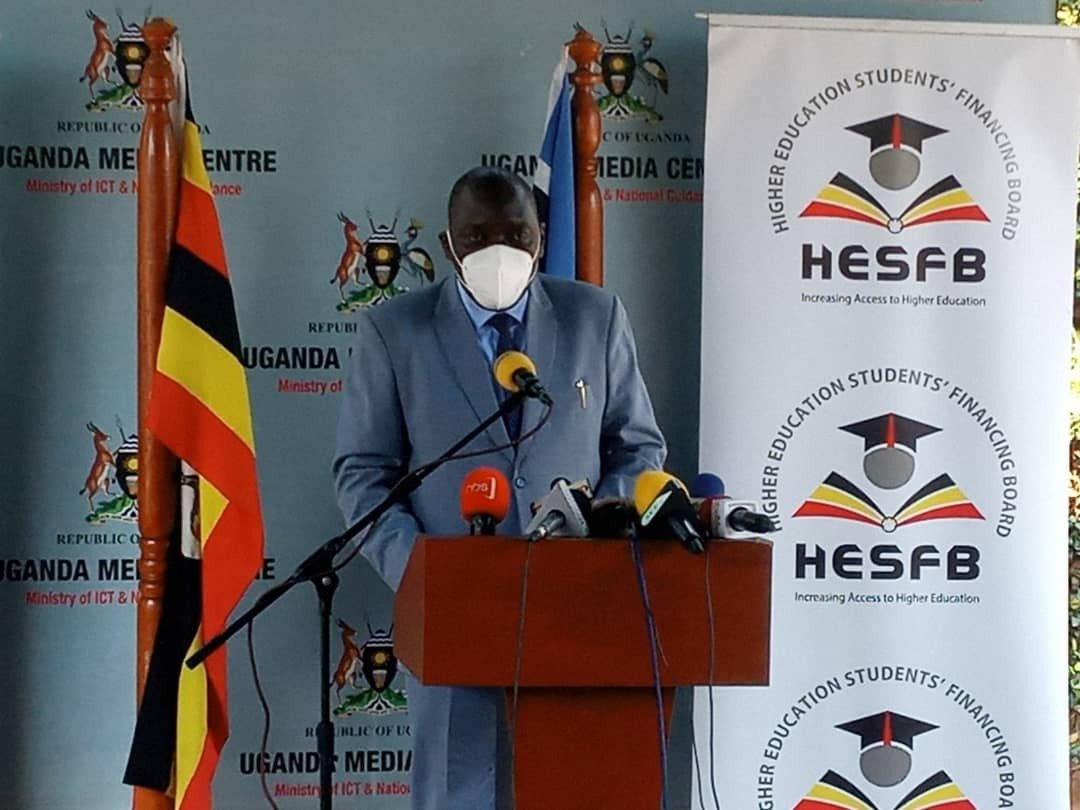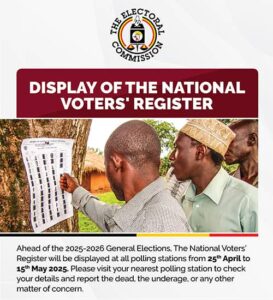Mr Henry Kyemba, now a retired politician and former friend of Luwum served was Uganda’s Minister of Health in President Idi Amin’s government when Luwum was killed in February 1977.
For Kyemba February 16, 1977 began as a normal day and there was nothing unusual about being summoned for a meeting at the Nile Mansions’ Hotel where President Idi Amin had scheduled to meet diplomats and other prominent people. Amin had an office at Nile Mansions on second Floor.
On reaching the Nile Mansions, however, it soon became clear to Mr Kyemba that some unusual business was going on. “We found that the place was surrounded by soldiers. A cache of arms had been laid out on the lawn and a number of people had been arrested. It was a sign that something was coming to a climax here,” Mr Kyemba says.
One of Amin’s most feared henchmen, Col Isaac Malyamungu, was on there to ensure that every word in the confession reached out to the accused. The charge against the accused including Luwum was conspiration to overthrow the government of Idi Amin and the accused had been found in possession of the arms which looked very new.
“Amin was watching proceedings from the Second Floor. We could not see him but he was following everything from up there,” Mr Kyemba recalls.
Shortly after the confessions had been heard, cabinet Ministers, the Clergy, soldiers and other government officials were invited into the Main Hall where Amin joined them and made a brief speech in which he accused the Bishop and others of treason.
“The Archbishop was seated in the VIP area in front of the podium and I saw him shaking his head as he was being accused, but nobody could say anything and he had no chance to respond,” Kyemba says.
According to Mr Kyemba, laying out arms, having confessions read out and making a direct if not public attack on the archbishop had not been according to Amin’s usual script and it was an ominous pointer at things to come. The situation in the country had been one of tension even amongst members of the cabinet. Right from the time he took over power in 1971, Amin had faced internal and external challenges.
Mr Kyemba thinks that the events of July 4, 1976 had left Amin badly annoyed and embarrassed. On that day, 100 Israeli commandos staged a 90-minutes sting operation on Entebbe airport and rescued 102 people who had been taken hostage by hijackers of the Popular Front for the Liberation of Palestine – External Operations (PFLP-EO), killed all the hijackers and 45 Ugandan soldiers but also destroyed over 20 Russian built MiG17s and MiG21 jets of the Uganda Air Force. Kyemba says this and the attempted coup on Amin’s government by a group of Ugandan exiles had invaded the country from Tanzania as early as 1972, shaped Amin’s conduct.
“The situation had been building for some time since the raid on Entebbe. Here was a country seeing a Field Marshal and Conqueror of the British Empire being humiliated! It was a humiliation that Amin found hard to deal with,” Mr Kyemba says.
Mr Kyemba and most of his colleagues had seen soldiers lead the Archbishop and Ministers Erinayo Oryema and Oboth Ofumbi outside the hall, but did not read much into it.
On his part, Mr Kyemba, who had been scheduled to take a visiting delegation to Paraa the next day, called up Amin and informed him that he would be leaving town. He found Amin rather brief, but again, he did not read much into it. “Normally he would chat for a few minutes and ask about this and that, but on this occasion he was curt. His mind was clearly onto something else,” Kyemba reminisces.
A few hours after reaching home, vice president Gen Mustapha Adirisi called to inform Kyemba that the Archbishop and ministers had died in an accident. To this Kyemba says, was also unusual because it was Amin who usually called him on important issues of similar magnitude. Killings had been going on across the country, but this is one killing that Kyemba had not been seen coming.
“I don’t think many had thought that Amin’s madness could go up to that extent of killing religious leaders like Archbishop Luwum. Many of us had thought that he can play with the Kyembas, and the like and so on, but to go as far as to take the lives of people in specific positions of leadership in the Church; I think really that was madness,” he says.
Mr Kyemba informed his mother with whom he had been staying at Kyadondo road about what he just been told. Her advice was even more stunning.
“She told me that she did not want to see me here anymore. She ordered me to leave the country immediately,” he recalls.
Kyemba had expected the bodies of the accident victims to be in Mulago in a few minutes, but it was several hours later that they were delivered on a military truck. When he arrive at Mulago hospital, Kyamba said he could not bear the sight of Archbishop Luwum lying on the floor in priestly robes with his body riddled by wounds. Kyemba says he later discovered these were bullet wounds including a shot through the mouth.
Amin directed him as minister of Health to provide a medical report, but the Government Pathologist, Dr Kafeero, declined to write it. Doctors attached to the Military were instead called upon to produce the report, but that did not erase suspicions.
The vehicles that were purported to have been involved in the fatal accident had all been involved in much earlier accidents according to Kyemba and the Range Rover in which the Archbishop and the Ministers were said to have been killed was one of Amin’s personal cars. Besides, he notes, the Range Rover was much bigger than the car which is said to have hit the Range Rover and resulted in the death of the trio.
If dealing with the dubious circumstances under which the purported accident had been a headache, the endless statements that Mr Kyemba is alleged to have issued proved a nightmare.
“All of a sudden I was being quoted issuing statements in the media, but I did not have an independent media house to go to and say no. that was not me,” he recounts.
Under normal circumstances, one would have expected the death of an Archbishop and ministers to be cause enough for a special sitting of the cabinet, but that did not happen.
He had already lost a brother under mysterious circumstances by then he says did not want to lose another and the most paramount decision was a flight to exile.
In April 1977, Mr Kyemba, together with his first wife, Theresa, travelled with the Ugandan delegation to Geneva. His second wife, Betty, after being briefly held at the Gaddafi garrison in Jinja, was released and fled through Kenya to and joined him. This was the flight that led to publication of Mr Kyemba’s book, “State of Blood”.
Asked whether he could make corrections in his book having taken time to recollect on the events that happened more than 44 years ago, Kyemba said it is true some few things may need to be changed citing a list of 100 people he stated had been killed during Amin’s brutal rule yet one of them was later found to be alive but had gone underground.
Kyemba defends his longer stay in Amin’s government despite his boss’s murderous behavior which he witnessed in close range when his own brother was murdered; “If I had gone earlier, still the country would have continued; it is a personal decision to make… I was minister when my brother was murdered, if I had gone, would it have made any difference to the Archbishop?”
He described Amin’s government as one that had two separate cabinets including one that was formal and an kitchen cabinet majorly comprised of army officers who he mostly fed him with advice that informed his decisions.
















